Philip Valencia
Video-based cattle identification and action recognition
Oct 14, 2021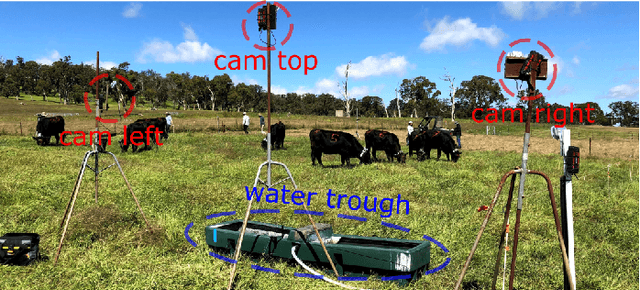

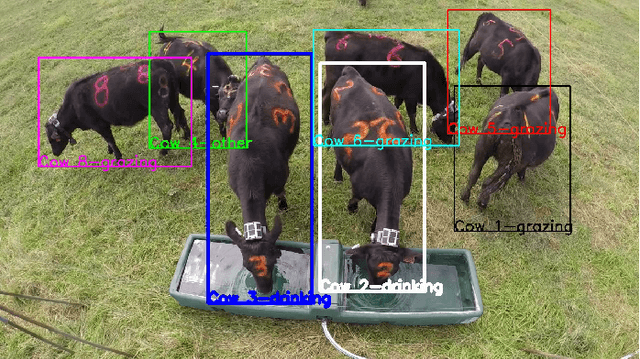
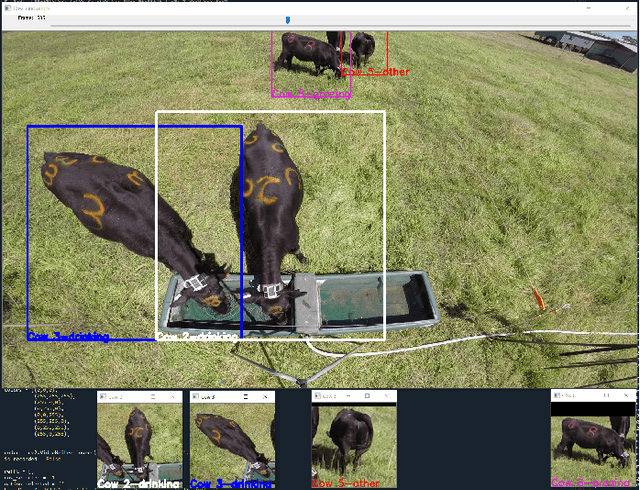
Abstract:We demonstrate a working prototype for the monitoring of cow welfare by automatically analysing the animal behaviours. Deep learning models have been developed and tested with videos acquired in a farm, and a precision of 81.2\% has been achieved for cow identification. An accuracy of 84.4\% has been achieved for the detection of drinking events, and 94.4\% for the detection of grazing events. Experimental results show that the proposed deep learning method can be used to identify the behaviours of individual animals to enable automated farm provenance. Our raw and ground-truth dataset will be released as the first public video dataset for cow identification and action recognition. Recommendations for further development are also provided.
Evolving embodied intelligence from materials to machines
Jan 17, 2019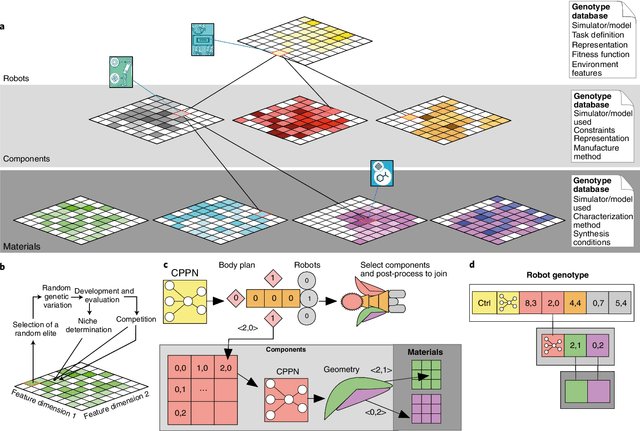
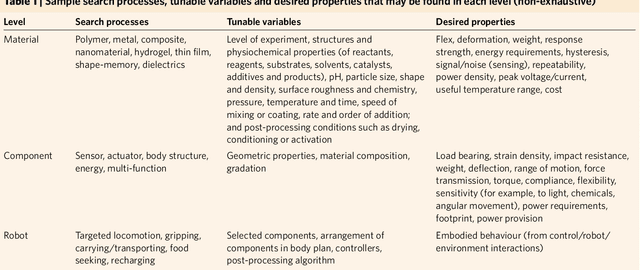
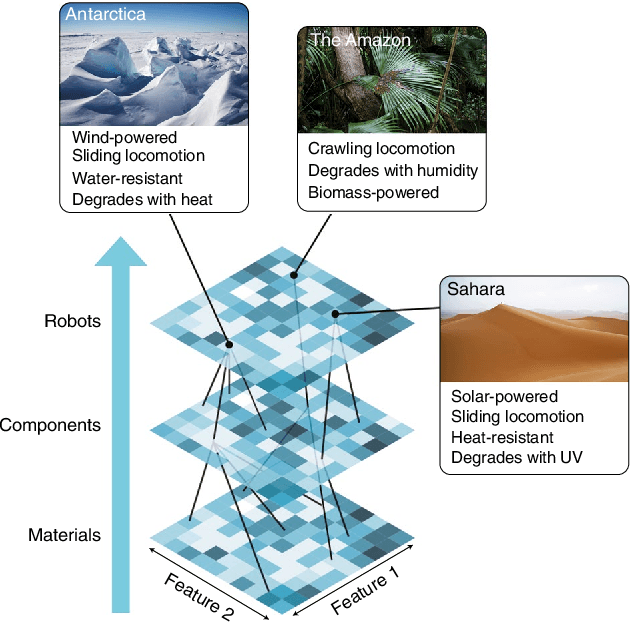
Abstract:Natural lifeforms specialise to their environmental niches across many levels; from low-level features such as DNA and proteins, through to higher-level artefacts including eyes, limbs, and overarching body plans. We propose Multi-Level Evolution (MLE), a bottom-up automatic process that designs robots across multiple levels and niches them to tasks and environmental conditions. MLE concurrently explores constituent molecular and material 'building blocks', as well as their possible assemblies into specialised morphological and sensorimotor configurations. MLE provides a route to fully harness a recent explosion in available candidate materials and ongoing advances in rapid manufacturing processes. We outline a feasible MLE architecture that realises this vision, highlight the main roadblocks and how they may be overcome, and show robotic applications to which MLE is particularly suited. By forming a research agenda to stimulate discussion between researchers in related fields, we hope to inspire the pursuit of multi-level robotic design all the way from material to machine.
Genetic Programming for Smart Phone Personalisation
Aug 11, 2014



Abstract:Personalisation in smart phones requires adaptability to dynamic context based on user mobility, application usage and sensor inputs. Current personalisation approaches, which rely on static logic that is developed a priori, do not provide sufficient adaptability to dynamic and unexpected context. This paper proposes genetic programming (GP), which can evolve program logic in realtime, as an online learning method to deal with the highly dynamic context in smart phone personalisation. We introduce the concept of collaborative smart phone personalisation through the GP Island Model, in order to exploit shared context among co-located phone users and reduce convergence time. We implement these concepts on real smartphones to demonstrate the capability of personalisation through GP and to explore the benefits of the Island Model. Our empirical evaluations on two example applications confirm that the Island Model can reduce convergence time by up to two-thirds over standalone GP personalisation.
 Add to Chrome
Add to Chrome Add to Firefox
Add to Firefox Add to Edge
Add to Edge